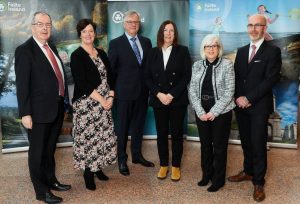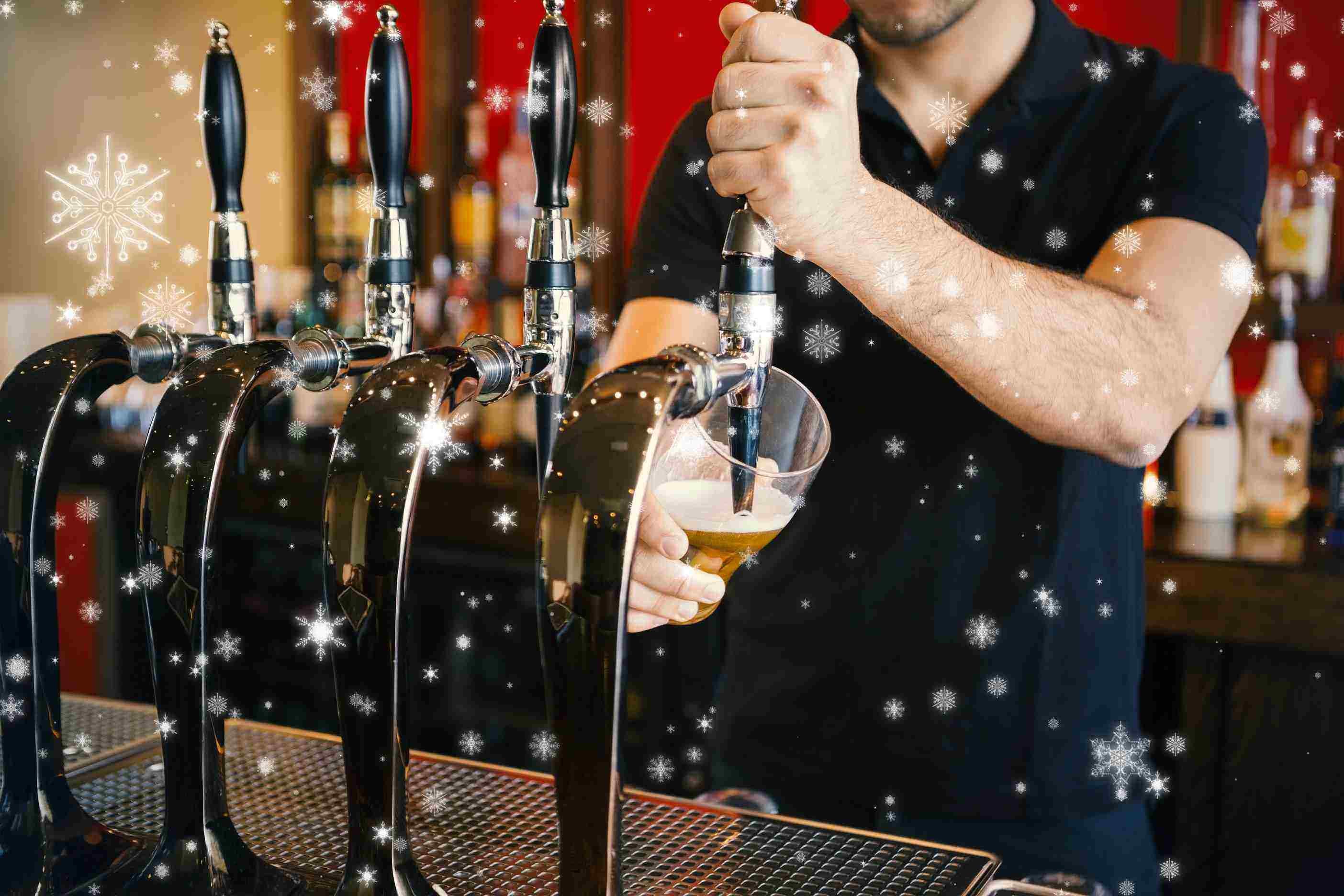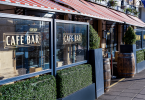Staffing remains major challenge – Fáilte Ireland

“Tourism is a building block for regional balance and a critical contributor to social cohesion.” – Paul Kelly.
At ‘From Survival to Recovery’, a special in-person event at the Convention Centre in Dublin attended by over 800 representatives from tourism and hospitality, Fáilte Ireland presented its largest and most robust research undertaken to date on staffing and skills in the tourism and hospitality sector. This surveyed 1,000 businesses and 3,500 Tourism & Hospitality employees.
And with 40,000 vacancies to fill – 24% of them at senior level – competition from other markets is set to become even more fierce.
Job security (with limited opportunities for career progression cited by 28% of respondents), low pay (‘unrealistic wage expectations’ cited by 60% of respondents with 40% strongly disagreeing that they get paid what they’re worth), unsocial hours (the most frequently mentioned reason for leaving by 64% of respondents) and work practices (including long and/or unplanned hours and expectations of being ‘on call’ on planned non-working days) were among the negatives associated with working in the sector.
Pay rates dissatisfaction
Pay is a common source of dissatisfaction in this sector. Some 52% reported hourly rates of €10.01 to €12.00 while 22% reported a rate of between €12.01 and €15.00. Only 2% reported a rate of over €20 per hour. As for what’s expected of employees in terms of unsocial hours, the survey discovered that while two-thirds get some form of compensation for Bank Holidays, unsocial hours are otherwise expected of them and this constitutes a significant reason why some no longer want to work in the sector.
Some 62% reported getting neither time off in lieu nor extra pay for working Sundays while 31% did report getting extra pay and just 7% reported getting time off in lieu.
While 37% reported getting extra pay and 30% getting time off in lieu for working Bank Holidays, 33% reported getting neither time off nor extra pay.
Similarly while 11% reported getting extra pay and 6% time off in lieu for working from 9 pm to midnight, 83% reported getting neither of these. The figure was only slightly less, 79%, for working between midnight and 7 am.
Indeed the survey found that four in 10 (42%) Tourism & Hospitality workers on Pandemic Unemployment Payments had not returned to their pre-pandemic employers.
Recruitment shortfall
Last Summer, one in every three workers were new to the Tourism & Hospitality sector, with the loss of international workers being particularly hard for 71% of Dublin businesses and 70% of those sectors that serve food.
55% of international workers returned home during the pandemic.
As a result, 70% of employers now experience considerable difficulty in recruiting bar service staff while 62% are having considerable difficulty recruiting waiters and waitresses.
This is also true for retaining staff such as waiters and waitresses (42%) and bar service staff (41%).
As employment approaches pre-pandemic levels and with unprecedented mobility across sectors, recruiting and retaining good people may get even harder, predicts Fáilte Ireland.
But an industry in crisis is most clearly demonstrated at the Culinary/Chef level.
Culinary/chef shortage
Some 88% of employers experience considerable difficulty in recruiting chefs while 51% also experience considerable difficulty in retaining chefs and culinary staff.
There’s also a perception among some 47% of respondents that the sector is prone to Lockdown.
The shortages have added to the stress and overwork for many owners and existing staff, with the impact also being seen on customer experience (80%) and reduced capacity or trading hours (79%).
Yet the majority (71%) of those respondents currently working in the sector regard Tourism & Hospitality as a long-term career.
Tourism & Hospitality sector recoverable
The Fáilte Ireland report states that for most of those workers not looking to be in Tourism & Hospitality the situation is recoverable, but they won’t consider returning unless the issues raised are addressed and some issues are harder to change than others, such as unsocial hours.
Employees see the issues as the employer’s responsibility to put right.
‘Better basic pay’ was cited by 62% of respondents as the main step that could be taken by employers to make respondents consider working in their business. Nevertheless, some 11% still stated that nothing would make them reconsider a career in Hospitality & Tourism.
Fáilte Ireland found that, “Tourism & Hospitality in all countries reviewed faces a similar set of circumstances for very similar reasons”.

The Fáilte Ireland report states that for most of those workers not looking to be in Tourism & Hospitality the situation is recoverable, but they won’t consider returning unless the issues raised are addressed and some issues are harder to change than others, such as unsocial hours.
Unrealistic expectations vs creative shift patterns
Some employers’ expectations are unrealistic such as looking for international experience yet offering minimum wage according to the report.
On the other hand some employers are being creative with their hours and shift patterns while building-in predictability.
‘From Survival to Recovery’
With 30% of businesses surveyed saying their business could face closure if recruitment challenges aren’t resolved, Fáilte Ireland’s Chief Executive Paul Kelly warned at the ‘From Survival to Recovery’ event that “staffing and competitiveness are the two most significant challenges facing the recovery of tourism in 2022″.
Outlining Fáilte Ireland’s plans to drive recovery of the sector this year, Paul Kelly continued, “Tourism is a building block for regional balance and a critical contributor to social cohesion.
“It’s essential for creating sustainable communities and a significant generator of jobs in regional and rural Ireland. As a critical part of the national economy, only when tourism recovers can there be a nationwide recovery.”
Fáilte Ireland’s plans aim to continue to drive domestic demand through a €10 million domestic marketing investment.
“Looking to the season ahead, we expect a strong recovery in inbound tourism with forecasts indicating that we’ll regain 83% of 2019’s air-passenger capacity by the end of the year,” he said.
A major element of Fáilte Ireland’s work plan for 2022 is a multifaceted tourism careers strategy to address the staffing and skills crisis in tourism and hospitality including the first-ever Excellent Employer Programme to support tourism and hospitality businesses to demonstrate their commitment to being rewarding and appealing workplaces that can compete for and retain skilled employees.
Excellent Employer Programme
Through the Programme, businesses will have access to HR and people management training and the opportunity to become certified as a top employer through an employee survey.
“As the economy fully reopens, competition for skilled workers is at an all-time high so our industry needs to drive immediate changes to retain existing and to attract new staff,” said Jenny De Saulles, Fáilte Ireland’s Director of Sector Development, in outlining Fáilte Ireland’s response to the acute staffing and skills crisis, “There are three key action areas where Fáilte Ireland will support industry.
“Fundamentally they’re about getting the people, keeping the people and upskilling the people – and each of these go hand-in-hand. If you’ve good retention and development programmes, people are more likely to want to work for you. Staff shortages existed pre-Covid but the pandemic and its impact on the stability of the sector along with the universal changes in working patterns has compounded the issue.”
The package of supports announced will help businesses in their immediate recruitment efforts, helping them commit to driving long-term change to make the industry an appealing and rewarding workplace that can attract and retain talent.
Fáilte Ireland’s new Programme will support businesses to do this and ultimately give the wider industry a platform to build back bigger and stronger, creating a fundamental shift in employee perception that will support the long-term repositioning of the tourism and hospitality industry and ensure a future pipeline of talent, she added.
Fáilte Ireland has detailed a range of initiatives to address the industry’s immediate recruitment efforts including support focused on accessing local and international talent pools, practical supports on implementing a comprehensive recruitment strategy including how to advertise roles effectively and successful interviewing in a competitive market as well as onboarding for the long term with one in three employees now new to the sector.
Further priorities to support the recovery of the tourism industry outlined by Fáilte Ireland include:
- driving demand through a €10million investment in domestic marketing including sponsorship of the RTÉ weather to encourage people to take additional short breaks in Ireland
- enhancing the digital capabilities of over 400 tourism businesses through Fáilte Ireland’s Digital that Delivers programme
- digital audit of over 800 hotels to be conducted and a suite of digital supports to ensure businesses are visible, searchable and most importantly – bookable
- leading the drive towards a more sustainable tourism sector by developing a carbon reporting framework to benchmark the performance of Irish tourism businesses and carbon calculators and supports to help businesses reduce their carbon footprint
- the development and implementation of four Regional Tourism Strategies in Wild Atlantic Way, Ireland’s Ancient East, Ireland’s Hidden Heartlands and Dublin as well as 27 localised Destination Development Plans which will be critical to driving the long-term recovery of tourism across Ireland
- administering €50 million through further phases of the Tourism Business Continuity Programme of funding which will help sustain strategic tourism businesses in 2022 and drive the sustainable recovery of the sector.
“The significant lifting of restrictions announced by An Taoiseach was the start of a new beginning for tourism and hospitality,” said the Minister for Tourism, Culture, Arts, Gaeltacht, Sport and Media Catherine Martin in welcoming Fáilte Ireland’s plans, “With a more positive outlook for inbound tourism, there’s hope that in 2022, we’ll see real recovery for the sector.
Commenting on the Fáilte Ireland research Ruth Andrews, Chairperson of the Irish Tourism Industry Confederation, said, “Labour supply is a critical issue for Irish tourism businesses and a multi-faceted strategy will be needed to support the industry rebuild and fully recover. As demand increases from both the domestic market and international tourist, it’s vital that the retention and recruitment of staff remains a number one priority and in this context Fáilte Ireland has a vital role to play alongside industry”.

Members of the Tourism & Hospitality Careers Oversight Group at the recent Fáilte Ireland event (from left): VFI’s Padraig Cribben, Fáilte Ireland’s Jenny De Saulles, IHF’s Tim Fenn, AVEA’s Denise Brophy, IHI’s Tina Maree and Dublin Convention Bureau’s Stephen Meehan.









